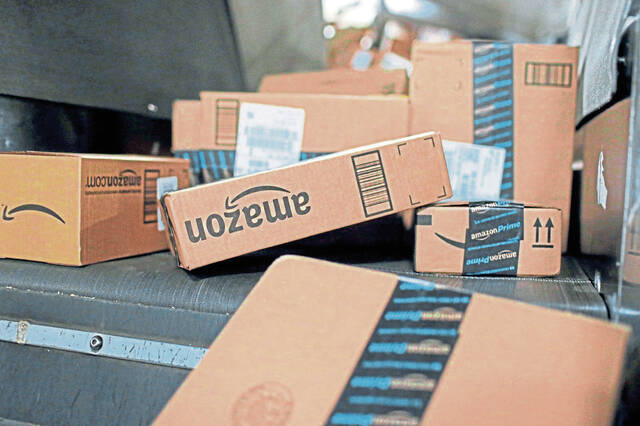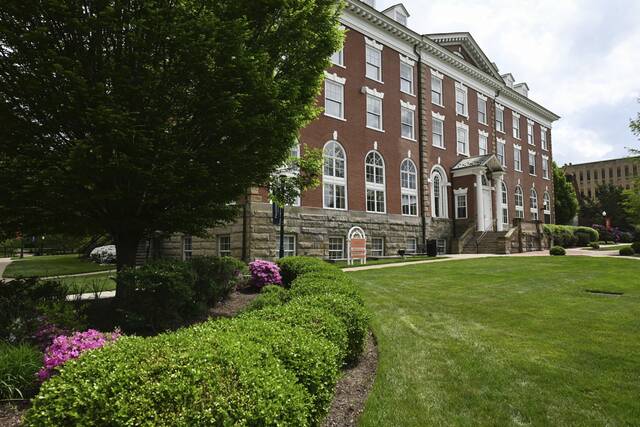The Pittsburgh region’s top state and federal law enforcement authorities announced Thursday they are teaming up to form the Western Pennsylvania Covid-19 Fraud Task Force to investigate and prosecute those committing fraud during the coronavirus outbreak.
“Our goal is simple: We seek to ensure there is no gap between the shields of federal and state law enforcement in protecting the public from fraudsters — whether here in Pennsylvania or around the globe — who would exploit this crisis in order to harm the citizens of Western Pennsylvania,” U.S. Attorney Scott W. Brady said in a statement. “Bad guys should know we are open for business. We will find you and stop you.”
The move comes two days after both Brady and Pennsylvania Attorney General Josh Shapiro separately announced measures they were taking to halt fraud in light of the coronavirus pandemic.
To report price-gouging, contact Shapiro’s office via a dedicated email: pricegouging@attorneygeneral.gov.
As of Thursday morning, Shapiro’s office has received 1,548 emails and 52 filed consumer complaints for 1,600 total, according to a spokesman for Shapiro’s office.
The office has also issued 52 cease-and-desist letters statewide, according to the spokesman, who said the office wouldn’t name the businesses or provide copies of the letters.
Shapiro’s office did provide these examples of complaints they’ve received in Western Pennsylvania:
- At a drug store chain in Monroeville, a 12-roll pack of toilet paper on sale for $21.
- A grocery store in Pittsburgh increased its prices on a gallon of Clorox bleach and 12-roll pack of Charmin to $7.69 and $19.39, respectively. The AG’s office issued a cease and desist letter.
- A different Pittsburgh grocery store was charging $51.33 for a pack of toilet paper.
- A grocery store in Butler County increased the price of a 16-roll pack of Charmin Mega Rolls to $21.99.
- Another Butler County store was selling a 10-roll pack of toilet paper for $22.
Two stores have lowered the prices. Others have closed or run out of the item they were selling, according to the AG’s office.
“People across Pennsylvania are concerned about their health and economic futures, and it is despicable that retailers, distributors and wholesalers are taking advantage of people,” Shapiro said in a statement.
It’s not just a problem in Pennsylvania, a survey by The Associated Press found.
Across a country where lines are long, some shelves are empty and patience thin, authorities are receiving a surge of reports about people trying to cash in on the coronavirus crisis with outrageous prices, phony cures and other scams. An AP survey of state attorneys general or consumer protection agencies across the country found the number exceeded 5,000, with hundreds more coming in every day.
AP’s survey is the most comprehensive look so far at the emerging problem.
In all, 40 states responded with numbers that included both tips and formally filed complaints against everything from individuals and mom-and-pop stores to big-box retailers. The count is certainly low because it only includes cases in which someone went online or called to register a grievance.
Many others merely went to the court of social media to vent their outrage.
“STOP SHOPPING HERE!!” one woman blared on Facebook next to cellphone photos of a Southern California grocery charging $6.98 for a gallon of milk and $14.99 for cheddar cheese. “There are families out there who really need groceries and they’re overcharging.”
Beyond AP’s state count, efforts to prevent exploitation are also being carried out by individual cities, such as New York, which alone has received more than 1,000 complaints, issued 550 violations and imposed $275,000 in fines for gouging, including one case in which a store was accused of selling bottles of Purell at $79 each. Among the items the city is preventing stores from jacking up the prices on: aloe vera and rubbing alcohol, the ingredients that can be combined to make hand sanitizer.
States are still checking out many of the claims. While some have gone to court against sellers, others have determined cases didn’t meet their legal standard for price-gouging, which generally involves an increase of more than 10 percent. About 10 states have no such law.
States typically try to resolve reports not by pursuing fines or criminal charges but by confronting the retailer, which typically apologizes and lowers the price.
In Maine, investigators had photographic evidence from a shopper to back up the convenience store sale of the $10 rolls of toilet paper. In Tennessee, where state lawyers forced two brothers to stop selling the more than 17,000 bottles of hand sanitizer they had hoarded, investigators checked out a tip that a store was charging $1 for a squirt of sanitizer.
There were reports of overpriced rice in Wisconsin and potatoes in Idaho. In Connecticut, a seller was reportedly hawking medical masks at more than 10 times the normal value. One couple in Ohio reported that a thermometer they bought for $8 at a national chain store cost $26 two days later.
Some rural states reported no complaints. A small slice of reports involved not high prices but false claims that products or services can test for or even cure the virus, which in most people causes only mild or moderate symptoms but can be deadly for some. The U.S. Food and Drug Administration has approved no treatments or vaccines, and the National Institutes of Health says no scientific evidence exists to suggest alternative remedies can prevent or cure the illness.
That hasn’t stopped the likes of televangelist Jim Bakker from pushing treatments with tiny silver particles, and conspiracy theorist and InfoWars host Alex Jones advertising toothpastes, creams and other products on his radio show. Both were targets last week of cease-and-desist letters from New York’s attorney general, and the federal government has sent warning letters to seven companies over false claims.
Oregon launched a price-gouging hotline this week. Oklahoma’s attorney general is shifting agents to its consumer protection unit.
In Michigan, where reports spiked from 363 on Tuesday morning to 572 by Wednesday afternoon, Attorney General Dana Nessel’s office issued cease-and-desist letters instructing businesses and online sellers to correct their pricing or risk further action.
Authorities in states including Florida were forwarding to the nation’s online retail giants — including Amazon, Walmart and eBay — reports that third-party sellers on their sites were overcharging.
In a statement, Walmart spokesman Kevin Gardner said the company is “taking a firm stance” against possible price-gouging on its Marketplace site. Walmart’s policy calls for removing listings that are unfairly priced.
On Wednesday, a bipartisan group of House lawmakers urged the Justice Department — which has so far focused on false claims rather than high prices — to police price-gouging so that people “have access to the items they need to protect themselves, their families, and their communities.”
In an AP interview this week, Attorney General William Barr pledged that the Justice Department would “come down hard” on profiteers so they are not “taking advantage to further hurt the American people.”
The Associated Press contributed to this report.











